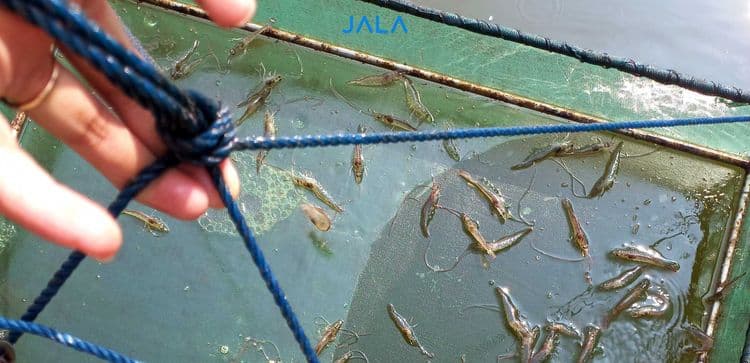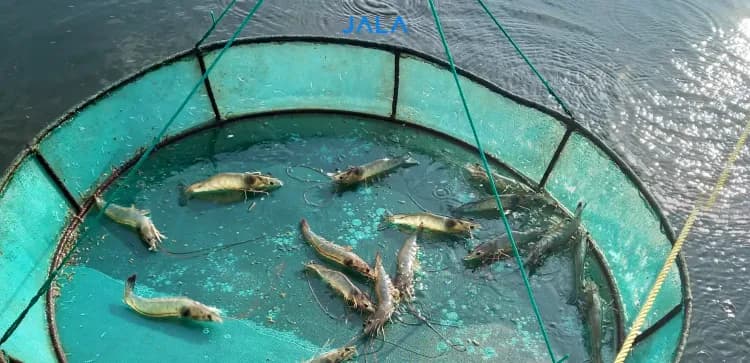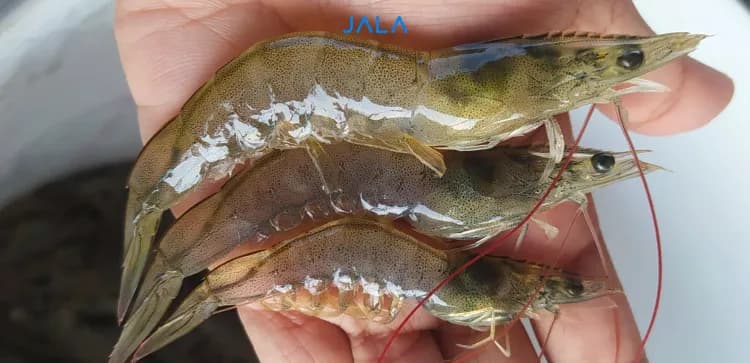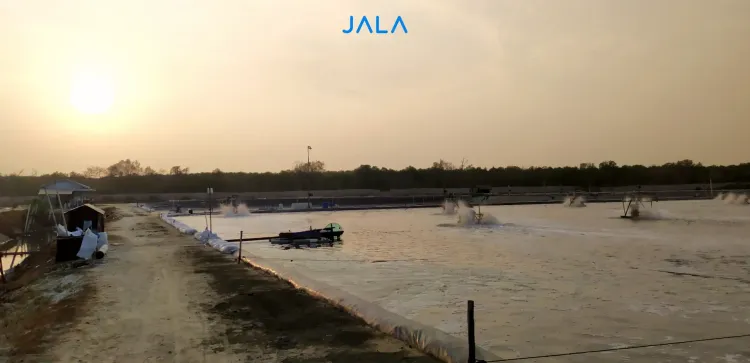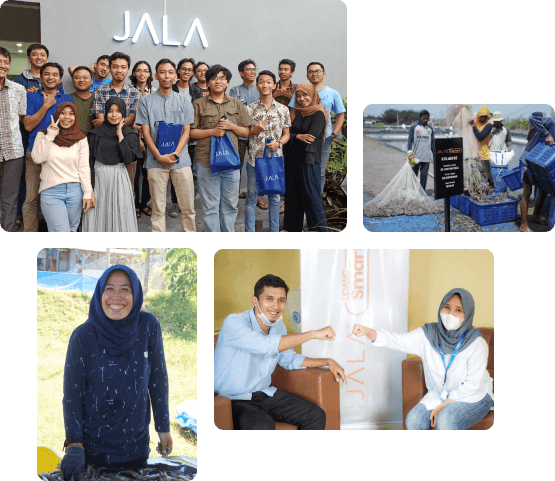
Maintaining good biosecurity for shrimp farmers isn’t just an operational task; it’s a critical measure to protect the health of their stock, preserve productivity, and safeguard investment. Implementing highly accurate pathogen testing can make all the difference in mitigating risk and ensuring the long-term success of shrimp farms.
The Risks of Inadequate Testing in Quarantine Procedures
Without rigorous pathogen testing, shrimp farms (and production systems) expose themselves to significant risks. Shrimp pathogens — including viruses, bacteria and microsporidia — can spread rapidly within and between farms, leading to costly outbreaks that can devastate operations. Comprehensive early detection is particularly vital in the quarantine phase, where any pathogens present in new stock can be identified and the biosecurity risk managed before spreading further.
Steve Arce, Global Technical Manager for Shrimp BU at Hendrix Genetics, emphasizes that current mandatory testing requirements (while helpful) may not be enough given the evolving nature of pathogens and variations in testing standards between countries. He explain that,
Each country is at different levels.
The need is there to apply more rigorous application in terms of proper PCR techniques and understanding of the pathogens of concern.
This evolving landscape requires farms to think beyond compliance, prioritizing thorough testing to safeguard their biosecurity and ensure dangerous pathogens don’t slip through the cracks.
Real-World Benefits of Comprehensive Testing
For Atlantic Shrimpers, a shrimp farming operation based in Nigeria, additional pathogen testing in quarantine has become standard practice. Project Manager Françoise Pironet shares that they encountered a pathogen, LSNV, in their stock despite the broodstock passing supplier-provided tests. Pironet also explain,
Our suppliers test batches before shipment, but we use Genics Shrimp MultiPath as a second line of defence.
Without it, we wouldn’t have detected LSNV in the batch of broodstock, which could have spread throughout our entire stock.
This additional layer of screening prevented a potentially damaging outbreak, saving Atlantic Shrimpers from significant financial and operational impacts.
Genics Shrimp MultiPath allows farmers to act with confidence, protecting their investment, surrounding environments, and the integrity of local shrimp populations.
Similarly, on an isolated island farm in Seychelles, Islands Development Company’s Fisheries & Aquaculture Development Manager, Riaz Aumeeruddy, oversees strict testing protocols.
The accuracy and sensitivity of pathogen testing are of major importance for our farm - Aumeeruddy explains.
The island’s isolation amplifies the importance of preventing any pathogens from entering the farm, as the spread to surrounding oceanic waters would jeopardize both the farm and the local ecosystem. By placing new shrimp larvae in quarantine until all pathogen tests return negative, Aumeeruddy and his team are implementing best-practice and doing everything they can to have a high-level of confidence to introduce only healthy stock to grow-out ponds.
With Shrimp MultiPath, we are confident we are screening as comprehensively as possible.
Going Above and Beyond: The Value of Highly Sensitive Testing
The experiences of Atlantic Shrimpers and Islands Development Company highlight a crucial point for shrimp farmers worldwide: going beyond standard testing requirements is an investment that protects the long-term viability of their farms. Routine pathogen screening that uses sensitive, accurate methods enables farms to detect even trace levels of pathogens. This level of scrutiny, often above and beyond what regulations require, provides essential security.
Steve Arce recommends a similar approach for the industry, particularly for quarantine testing.
Routine screening of all shrimp stocks with statistically significant sample sizes provides at least 98% confidence in health status.
In his experience, adding these practices and employing Shrimp MultiPath alongside histopathology significantly reduces the risk of pathogens going undetected. By investing in testing practices that ensure pathogen detection at the earliest stage, farmers can stop potential outbreaks before they start, preserving farm productivity and profitability.
MultiPath testing provides qualitative and quantitative data, giving farmers a clear picture of the pathogen load in their stock. For shrimp farmers, this detailed insight translates to better decision-making and the ability to implement timely interventions, protecting both their stock and their investment.
As Pironet describes,
Genics MultiPath testing doesn’t just identify pathogens but also allows us to develop the best strategy tailored to our needs.
This service goes beyond basic testing and helps us make informed decisions that protect our operation.
Reducing the Spread of Emerging Pathogens
The shrimp industry faces an ever-present challenge of emerging pathogens and changes in existing pathogen strains.
As Arce points out,
It’s not the pathogens we know of now that pose the greatest threat, but the yet-to-be-identified pathogens which should be considered and proactively addressed.
With the rapid movement of live shrimp stock across countries, farms are at constant risk of encountering new pathogens. A highly sensitive testing approach allows farms to screen comprehensively for known and emerging threats, protecting the health of their current stock while preventing the spread to other farms.
Case for Best Practices in Pathogen Testing
For shrimp farmers, investing in highly accurate, sensitive pathogen testing isn’t just about protecting a single crop; it’s about preserving the entire operation and, ultimately, the future of their farm.
By integrating MultiPath into their testing protocols, farms like Atlantic Shrimpers are able to detect pathogens like LSNV in imported broodstock, where other tests failed, minimizing the risk of outbreaks.
The cost of Genics Shrimp MultiPath testing is worthwhile. Additional screening ensures that each batch that arrives is safe, significantly reducing the risk of a disease outbreak.
For isolated farms like Islands Development Company in Seychelles, additional testing supports the entire ecosystem in which they operate, ensuring that farms contribute to sustainable shrimp production rather than creating vulnerabilities.
Incorporating thorough, statistically significant testing in quarantine practices gives farmers confidence in their stock’s health, while also setting a high standard for biosecurity across the shrimp industry.
In a world where pathogens are constantly evolving, the importance of sensitive and accurate testing before translocation or movement cannot be overstated.
About Genics
Genics is an Australian biotechnology company focused on the development of the world's most advanced early pathogen detection and breeding program services, supporting global food security goals and biosecurity measures. Genics proprietary pathogen detection offering, Shrimp MultiPath™ is the world's most comprehensive pathogen detection tool for shrimp farming, offering unparalleled accuracy and speed. With operations in over 50 countries, Genics combines cutting-edge technology, rigorous scientific research, and partnerships with global leaders like CSIRO and Weatherbys Scientific to deliver early disease detection and comprehensive genetic analysis for shrimp.

